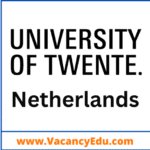Swansea University, Wales, United Kingdom invites online Application for number of Fully Funded PhD Degree at various Departments. We are providing a list of Fully Funded PhD Programs available at Swansea University, Wales, United Kingdom.
Eligible candidate may Apply as soon as possible.
(01) PhD Degree – Fully Funded
PhD position summary/title: Health Data Science: Fully Funded PhD Studentship in Understanding the Relationship Between Indoor Air Quality in Schools and Asthma and Educational Outcomes
The successful candidate will work in a highly interdisciplinary environment as part of a vibrant cohort of HDR UK-funded PhD students, with outstanding networking opportunities with fellow students and colleagues located across the 4 nations of the UK. HDR UK’s mission is to unite the UK’s health data to enable discoveries that improve people’s lives. Its 20-year vision is for large-scale data and advanced analytics to benefit every patient interaction, clinical trial, and biomedical discovery and to enhance public health.
This PhD is funded as part of the HDR UK Inflammation and Immunity Driver Programme, which seeks to transform the UK’s capabilities to improve understanding of mechanisms and health outcomes, using respiratory and allergic disorders as exemplar domains. We seek to enrol the most exceptional candidates and nurture them to become the next generation of leaders in health data science. The successful candidate will have opportunities to access, and contribute to, training activities organised by HDR UK, including via HDRUK Futures as well as within their own institution and as part of the Driver Programme team.
This Driver Programme will explore inflammation and immunity as general underpinning mechanisms, using highly prevalent respiratory and allergic diseases in the first instance. These illnesses can be exacerbated by acute inflammatory episodes due to infections (i.e., rhinovirus, coronaviruses, influenza, pneumonia, RSV) a well as pollution, tobacco, pollen, weather, drugs, foods and stinging insects. The long-term plan for the Driver Programme is to extend the data science capabilities and capacity created, to other inflammatory mediated diseases.
Deadline : 03 September 2025
(02) PhD Degree – Fully Funded
PhD position summary/title: Chemical Engineering : Fully funded PhD Studentship in Advanced Energy Storage: novel polymeric membranes for high-energy and safe batteries (RS884)
Lithium-ion batteries (LIBs) are the backbone of modern energy storage, but further breakthroughs in energy density and cost efficiency are essential to meet the demands of next-generation applications. This PhD project offers an exciting opportunity to pioneer separator-free battery architectures using ultrathin, high-performance coatings made from polymers of intrinsic microporosity (PIMs). By replacing conventional polymeric membranes and adopting dry-processed electrodes, this work has the potential to double energy density, reaching up to ~500 Wh/kg, while cutting manufacturing costs.
Through advanced polymer design, scalable synthesis, and precision coating techniques, you will develop robust, submicron PIM-based membranes tailored for high-energy lithium-ion batteries. This interdisciplinary project bridges polymer chemistry, membrane science, and electrochemical engineering, and involves collaboration with industry experts in advanced membrane manufacturing.
Deadline : 27 August 2025
View All Fully Funded PhD Positions Click Here
(03) PhD Degree – Fully Funded
PhD position summary/title: Biomedical Engineering: Fully Funded PhD Studentship in Medical Environments and Digital Image Correlation: Advancing Translation and Optimising Reliability (MEDICATOR) (RS883)
This project aims to enhance best practices in strain quantification for biomedical applications, facilitating the transition of image-based measurement methods from laboratory research to clinical practice.
Digital Image Correlation (DIC) is a well-established, non-contact optical technique used to measure motion and deformation. It provides comprehensive full-field deformation data, essential for analysing complex materials, structures and model validation. The DIC community has developed guidelines to ensure robust measurements, continually advancing standards through ongoing challenges.
In experimental mechanics, classical materials testing also benefits from a range of well-established methods. However, biomedical applications lack such a wealth of standardized protocols to address the diverse and challenging nature of heterogeneous biological materials and environments. This absence of guidelines extends to the application of DIC in biomedical contexts, limiting its potential. DIC holds significant promise for enabling non-contact measurements on delicate or sensitive structures, highlighting the need for standardized practices in this field.
If robust and reproduceable, DIC would transform the field, from tissue scaffold design in tissue engineering evaluation to surgery. The student will focus on establishing best practice for widespread applicability, building on past skin, heart, lung, brain and biomaterials research within the Lab. This experimentally focused PhD position will fit a wide range of application interests, suitable for applicants from all engineering and scientific backgrounds. The student will develop test protocols, in this highly interdisciplinary project, by leveraging collaborations across various Swansea University facilities to use DIC in both biomechanics labs and simulated clinical environments. The Biomedical Engineering Simulation and Testing (BEST) Lab will be the primary site of work led by Dr Arora with opportunities to work with Reconstructive Surgery & Regenerative Medicine Research Centre (ReconRegen) led by Professor Iain Whitaker, Advanced Imaging of Materials Facility (AIM) led by Professor Richard Johnston and Swansea University’s Simulation and Immersive Learning Centre (SUSIM).
Deadline : 27 August 2025
(04) PhD Degree – Fully Funded
PhD position summary/title: Geophysics, Hydrogeology, Engineering: Fully Funded PhD Studentship in Climate costs of boreal forest clear-cutting – a multiscale experiment (CORE) (RS880)
The PhD project is linked to a large Swedish research project that aims to assess the biotic and abiotic climate effects (“costs”) of rotation forestry. The PhD student will gain research experience in state-of-the-art hydrogeophysical methods, hydrological modelling, soil flux analysis, and be able to work in an international team with world-leading scientists.
The PhD student will identify the spatiotemporal impacts of clear-cutting on soil physical characteristics, hydrogeology and GHG emissions. Existing benchmark data like below-ground geophysical, hydrogeological, and soil properties, and above-ground soil and ecosystem GHG fluxes were collected prior to the recent forest clear-cut. These data will be complemented by equivalent new ‘after clear-cut’ measurements by the PhD student, allowing the assessment of both the ‘before’ and ‘after’ clear-cut hydrological states and GHG fluxes.
The many diverse training opportunities will include field-based geophysical measurements using a range of geoelectrical techniques, GHG soil flux measurements and associated soil-based analyses, as well as analysis of ecosystem GHG fluxes and remotely sensed data. We will support the PhD student in publishing the results in high-quality journals and in presenting these at international conferences. The post is based at Swansea University, United Kingdom, and will include several weeks of fieldwork campaigns at the Norunda research station in Sweden (100 km north of Stockholm), with the opportunity for extended visits at Lund University, Sweden.
Deadline : 25 August 2025
(05) PhD Degree – Fully Funded
PhD position summary/title: Electronic and Electrical Engineering: Fully Funded Swansea University, MOD and M2M UK PhD Scholarship: Smart Beam and Null Steering Antennas for 6G Cellular Networks (RS882)
The advent of 6G cellular technology promises to revolutionize communication and transportation systems. A pivotal component in this technological leap is the development of smart beam steering antennas, designed to enhance network efficiency and reliability. This project focuses on innovating beam and null steering antenna systems that are optimized for 6G cellular networks and autonomous vehicles, including planes, trains, drones, airships, and cars.
In the realm of 6G cellular networks, these antennas will significantly boost data transmission rates and reduce latency, make entire system greener by over factor of 10000 and facilitating ultra-reliable low-latency communications (URLLC). This enhancement is vital for the safe and efficient operation of self-driving vehicles, which rely heavily on real-time data exchange for navigation and decision-making.
For autonomous planes, trains, airships, and cars, the integration of these smart antennas will lead to improved navigation capabilities, better safety protocols, and a more reliable communication network. This project not only aims to push the boundaries of wireless communication technology but also aspires to be a cornerstone in the infrastructure of next-generation intelligent transportation systems.
Deadline : 25 August 2025
Polite Follow-Up Email to Professor : When and How You should Write
Click here to know “How to write a Postdoc Job Application or Email”
(06) PhD Degree – Fully Funded
PhD position summary/title: Comp Mechanics & Engineering Simulation: Fully Funded PhD Studentship in A Finite Volume Arbitrary Lagrangian Eulerian computational framework for high-speed multi-material impact (RS859)
Computational verification of high-speed multi-material flows, where physical experimentation is highly limited, is seen as critical by the Defence Sector (source: the UK Atomic Weapons Establishment). Recent work by the group (leading to REF 4* rated outputs and several Keynotes) has contributed to bridging the gap between Computational Solid and Fluid Dynamics, with a unified computational framework exploiting the use of physical and geometrical conservation laws in a variety of spatial discretisation schemes (i.e. Finite Element, Finite Volume, Meshless). The resulting conservation-type formulation, which displays striking similarities to that used by the Computational Fluid Dynamics (CFD) community, has inspired the investigators to adopt conventional CFD algorithms in the novel context of Computational Solid Dynamics
Building upon very recent work made by the supervisory team, this FULLY FUNDED 4-year PhD project will investigate challenging aspects such as: (1) exploration of a truly “n” multi-material capability with a suitable closure model; (2) improved strategy for interface tracking/capturing; (3) very high-speed scenarios with use of nonlinear Riemann-solvers. If time allows exploratory 3D development could be foreseen in Year 4.
Deadline : 25 August 2025
(07) PhD Degree – Fully Funded
PhD position summary/title: Chemical Engineering: Fully Funded PhD Studentship in the Novel Heterogeneous Catalytic Process for Net-Zero Water Industry (RS860)
In the UK, industries such as pharmaceuticals, food processing, and agriculture generate significant amounts of organic wastewater. Annually, the UK produces 2.4 billion cubic meters of wastewater, with about 50-70% being organic. Environmental regulations, including the Water Resources Act 1991, the Environmental Protection Act 1990, and the Water Industry Act 1991, mandate that wastewater must be treated before being discharged into the environment. Thus, these industries require effective wastewater treatment solutions to mitigate environmental impacts and comply with regulations. However, conventional treatment technologies face limitations related to high energy consumption and inefficiencies in removing toxic non-biodegradable organics. Advanced oxidation processes (AOPs) are also energy-intensive. To reduce emissions while maintaining the benefits of AOPs, this project explores catalytic means of organic wastewater treatment. Heterogeneous catalysis, an emerging technology, offers the potential to enhance treatment efficiency, reduce energy consumption, and minimize sludge production. This technology uses solid catalysts such as titanium dioxide, activated carbon, and zeolite-supported materials.
Deadline : 25 August 2025
(08) PhD Degree – Fully Funded
PhD position summary/title: Biosciences : Fully Funded EPSRC DTP PhD in the ALGALNETS Unravelling the assembly of microbial interactive communities in algal bioreactor (RS858)
This is an exciting opportunity to explore the role of complex microbial communities in promoting resilience and maximising yields in large scale algal bioreactors exposed to different environmental conditions. The specific aims are:
- To optimise large-scale production of a high-value carotenoid compound that is naturally released in nanoparticle form by a marine alga.
- Develop a mechanistic understanding of the assembly of these complex microbial communities using ecological theory and mathematical models.
The questions we address are: (1) how does the microbial community change during cultivation across the seasons?, (2) what is the impact of the microbial community on culture resilience or productivity?, (3) what are the community-related mechanisms behind these ecosystem functions? and (4) can we develop a theoretical understanding of the mechanisms of assembly that yield microbial communities capable of enhancing resilience and productivity of these cultures?
The project will integrate environmental inputs, algae physiological parameters and microbial community eDNA data to develop predictive mechanistic models which can be utilised to develop an optimal cultivation strategy. The project is cross-disciplinary in nature, building skills in molecular biology, bioinformatics, ecological mathematical modelling, algal physiology and cultivation. We are looking for a highly self-motivated individual able to progress both the mathematical, computational and laboratory aspects of the project to maximum effect.
Deadline : 25th August 2025
Click here to know “How to Write an Effective Cover Letter”
(09) PhD Degree – Fully Funded
PhD position summary/title: Applied Mathematics: Fully Funded PhD Studentship in Agent-Based Infection Modelling for HIV Treatment Optimisation (RS879)
HIV remains one of the most persistent and challenging infections to cure due to its ability to lie dormant in reservoirs within the body: T-cells that are infected but no actively replicating virus. This allows the virus to evade standard treatment approaches. Despite years of antiretroviral therapy (ART), complete eradication of the virus is hindered by the presence of these reservoirs, which require continuous lifetime treatment. Recent efforts to cure HIV infection have focused on developing latency reversing agents as a first step to eradicate the latent reservoir and animal models are being studied to understand these dynamics.
This project proposes a novel pipeline of ideas to generate tools and techniques to simulate HIV infection dynamics using a multiscale agent-based modelling technique (cells, viruses, drugs, antibodies, human lymph system, seconds, days, years).
Deadline : 25 August 2025
About Swansea University, Wales, United Kingdom –Official Website
Swansea University (Welsh: Prifysgol Abertawe) is a public research university located in Swansea, Wales, United Kingdom. It was chartered as University College of Swansea in 1920, as the fourth college of the University of Wales. In 1996, it changed its name to the University of Wales Swansea following structural changes within the University of Wales. The title of Swansea University was formally adopted on 1 September 2007 when the University of Wales became a non-membership confederal institution and the former members became universities in their own right.
Swansea University has three faculties across its two campuses which are located on the coastline of Swansea Bay. The Singleton Park Campus is set in the grounds of Singleton Park to the west of Swansea city centre. The £450 million Bay Campus, which opened in September 2015, is located next to Jersey Marine Beach to the east of Swansea in the Neath Port Talbot area. The annual income of the institution for 2021–22 was £369.9 million of which £69.2 million was from research grants and contracts, with an expenditure of £446.3 million.
It is the third largest university in Wales in terms of number of students. It offers about 450 undergraduate courses, 280 postgraduate taught and 150 postgraduate research courses to 20,375 undergraduate and postgraduate students.
Disclaimer: We try to ensure that the information we post on VacancyEdu.com is accurate. However, despite our best efforts, some of the content may contain errors. You can trust us, but please conduct your own checks too.
Related Posts
- 11 Funded PhD Opportunities at Umea University, Sweden

- 18 Funded PhD Opportunities at Stockholm University, Sweden

- 18 Funded PhD Opportunities at Lund University, Scania, Sweden

- 18 Funded PhD Opportunities at University of Cambridge, United Kingdom

- 23 Funded PhD Opportunities at Swedish University of Agricultural Sciences, Sweden

- 16 Funded PhD Opportunities at University of Twente, Netherlands

- 27 Funded PhD Opportunities at Ulster University, Ireland

- 31 Funded PhD Opportunities at University of Dundee, Scotland, United Kingdom

- 28 PhD Positions-Fully Funded at University of Freiburg, Germany











